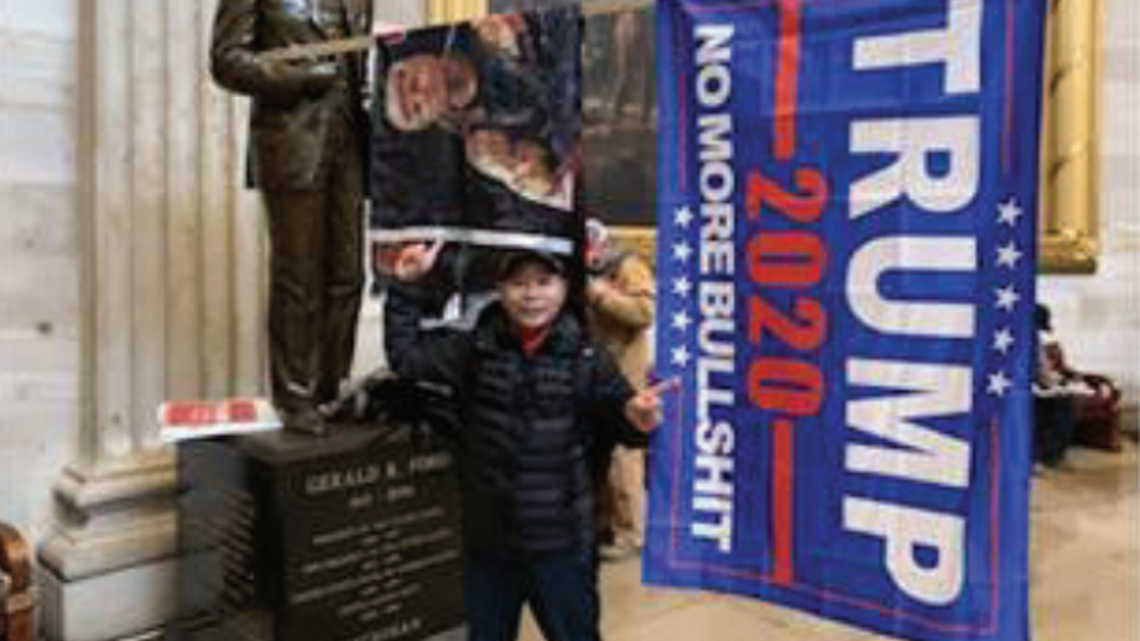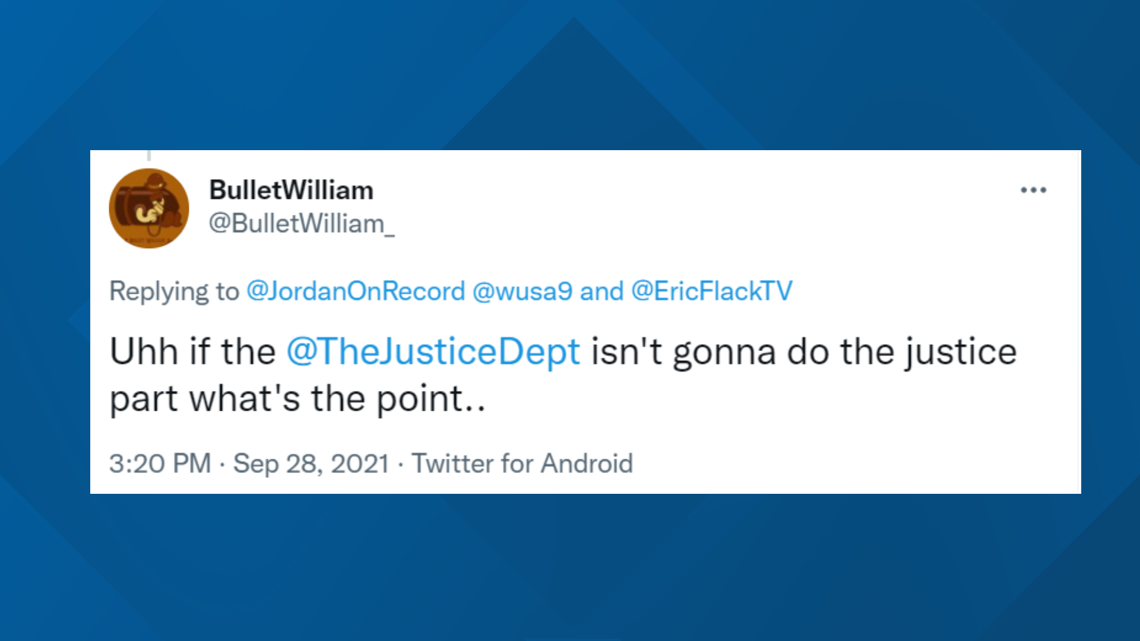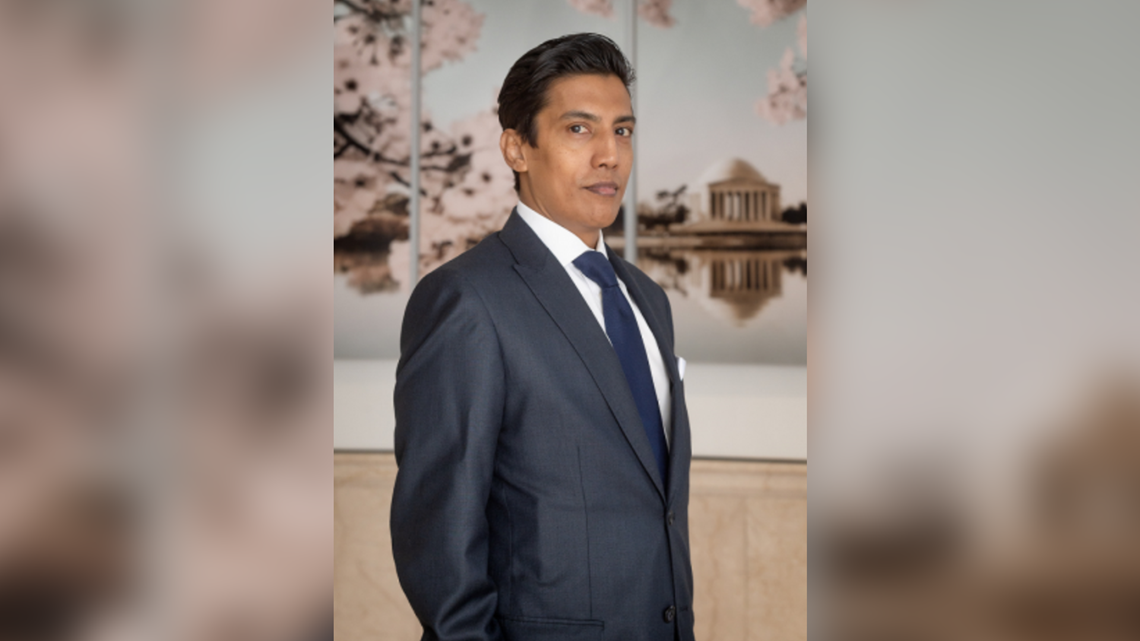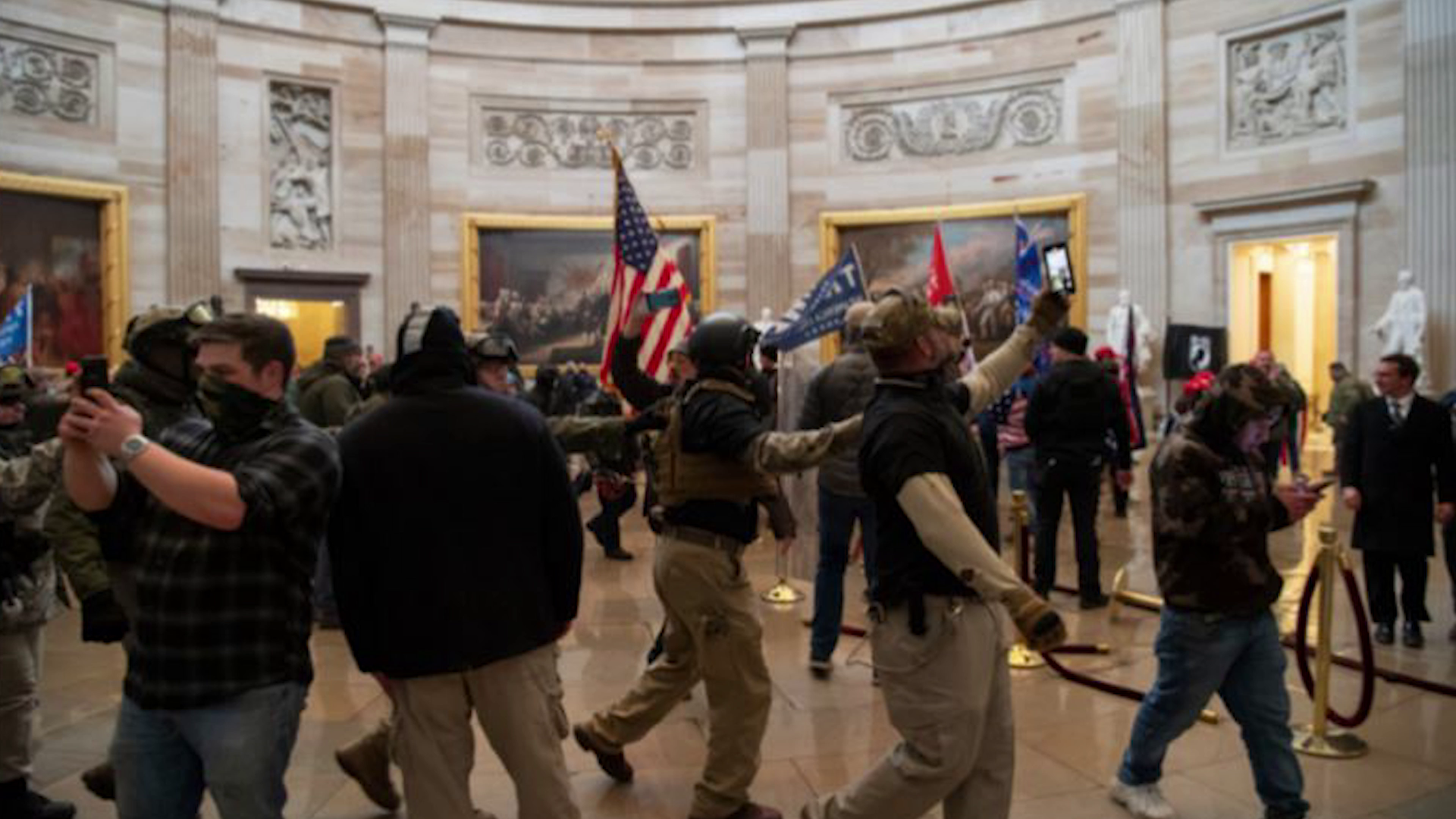WASHINGTON — On January 12, six days after thousands of supporters of former President Donald Trump stormed the U.S. Capitol Building, FBI agents traveled to Richmond, Texas, to interview an 18-year veteran of the Houston Police Department.
The agents were there to speak with the officer, Tam Dinh Pham, not for his help with an investigation, but about his role in the Capitol riot. But, according to charging documents, Pham initially lied to the FBI – claiming he had only briefly attended Trump’s “Stop the Steal” rally and denying he’d ever entered the Capitol.
Pham gave investigators permission to look at his cell phone, where they discovered all photos from the dates he was in Washington, D.C. had been deleted. Pham had not removed them well enough, though, as agents found images in his “Deleted” folder clearly showing him inside the Capitol Rotunda posing with a large Trump flag.


The FBI then warned Pham it was illegal for him to lie to investigators, at which point he admitted not only had he entered the Capitol on January 6, but he had climbed over fences and barricades that had been torn down to do so.
Still, Pham – a law enforcement officer of nearly two decades who had taken steps to hide evidence of his involvement in the largest federal criminal case in American history – was, ultimately, only charged with four misdemeanors. Last month, he was allowed to plead guilty to just one count of parading, a Class “B” misdemeanor that carries a maximum sentence of 6 months in prison. Because of his lack of criminal history, he could receive only probation at sentencing.
Online, Pham’s plea deal sparked outrage, with Twitter users posting the former police officer got a “slap on the wrist” and that there should be “no plea deals at all” for January 6 defendants. Others demanded the “max penalty” and “prison time” for those involved in the insurrection.
One twitter user asked flatly, “If the Department of Justice isn’t doing the justice part, what’s the point?”
It's a question some federal judges presiding over Capitol riot cases have begun asking – albeit in different ways – as well.


'There Have to Be Consequences'
On September 28, a Pennsylvania woman, Dawn Bancroft, appeared before U.S. District Judge Emmet Sullivan to plead guilty to the same petty misdemeanor parading count as Pham.
Unlike Pham, though, Bancroft hadn't just entered the Capitol – she'd recorded and sent a video to her children threatening House Speaker Nancy Pelosi.
“We got inside. We did our part,” Bancroft says in the video. “We were looking for Nancy to shoot her in the friggin’ brain but we didn’t find her.”
How, Sullivan asked, did that not rise to the level of a felony threat charge?
“It’s very troubling to hear someone say the reason they entered the Capitol on January 6 was essentially to murder the Speaker of the House,” Sullivan told Bancroft. “Very troubling.”
The Justice Department told Sullivan they decided against pursuing a threat charge because Bancroft and a friend, Diana Santos-Smith, had already exited the building at the time the video was recorded. But the DOJ did decide to file felony charges against another defendant, Cleveland Grover Meredith, of Georgia, who also sent messages to family members threatening Pelosi and D.C. Mayor Muriel Bowser, even though Meredith was not at the Capitol on January 6.
On Monday, another judge, U.S. District Judge Tanya Chutkan, said the Justice Department was too lenient in its request for three months of home confinement and no jail time for another defendant, Matthew Mazzocco of Texas.
Mazzocco filmed other rioters scaling the terrace walls and breaking into the building on January 6 and still chose to enter the building, federal prosecutors said during his sentencing. He also posted a snarling selfie with the caption, "The capital is ours!"
All of that, Chutkan said, deserved more than a "slap on the wrist."
“What happened that day was nothing short of a violent mob attempting to disrupt the peaceful transition of power,” Chutkan said. “That mob was trying to overthrow the government.”
“There have to be consequences,” she added, sentencing him to 45 days in jail instead.
Even D.C. District Court Chief Judge Beryl Howell has questioned the DOJ in open court about why so many January 6 defendants are being permitted to resolve their criminal cases with a misdemeanor plea.
In a hearing in July, Howell asked the DOJ if they weren't concerned that petty misdemeanor charges and light sentences would do little to deter a future attack on the Capitol.
"This could be a circumstance that arises every four years," Howell said.
As of Wednesday, of the 630 defendants currently charged in the Capitol riot, 97 have reached plea deals with the government. Of those, just 15 have been for felony charges. The remainder were to Class "A" or "B" misdemeanors – the vast majority to a single charge of parading, demonstrating or picketing in a Capitol building that carries a maximum sentence of 6 months in prison.
'I Got Death Threats'
The public ire over January 6 plea deals perceived as too lenient hasn't been limited to judges and prosecutors, though.
In June, D.C. defense attorney Nabeel Kibria was able to negotiate a plea deal with the Department of Justice that got Jessica Bustle, of Virginia, two months of home detention on one count of misdemeanor parading in a Capitol building. Her husband, Joshua Bustle (who was represented by another attorney, Timothy Vitow Anderson) was sentenced to one month of home detention. Jessica's extra month stemmed from social media posts she made, including one reading, "Pence is a traitor. We stormed the capital."
According to Kibria, the response to the sentencing for the couple, who entered the Capitol carrying anti-vaccine signs, was less than enthusiastic.
“I got death threats,” Kibria said in an interview conducted at his downtown D.C. office.


U.S. District Judge Thomas Hogan said he was concerned by Jessica's posts, but not enough to send the couple to prison. He also encouraged them to seek out accurate information on the coronavirus vaccine – particularly in light of the fact that Jessica was pregnant.
In the Bustles' case, Kibira said he believes justice was served.
“I think so. I think justice was served,” Kibria said. “Because, again, as I said, these people, I don't think we're there to stop the government. I don't I don't think they were really there to stop the certification of the election.”
'You Have to Charge These People'
For those looking for an explanation as to how hundreds of people who stormed the U.S. Capitol can get off with a misdemeanor, former federal prosecutor Neama Rahmani believes it comes down to a simple matter of the resources at hond for the U.S. Attorney’s Office of the District of Columbia, which is trying all 600+ Capitol riot cases.
The office is faced with more than 180 cases involving assaults on police, including a nine-defendant indictment connected to the sustained assault on officers in the Capitol tunnels. Prosecutors also have to juggle multiple complex, multi-state conspiracy cases – not the least of which is the one involving 20 alleged Oath Keepers. That case has so many defendants the DOJ now plans to try them in two separate groups, with the first beginning in late January.
“You have to charge these people,” Rahmani said. “You cannot give people a free pass when they enter the Capitol Building unlawfully. So, they're trying to strike a balance. But the Department of Justice isn't positioned to try 600 felony cases. It's just not what they do.”
Still, some conservative-leaning politicians and pundits have said the Department of Justice should not be criminally prosecuting low-level Capitol riot defendants at all – pointing to deferred prosecution agreements given to some defendants arrested during Black Lives Matter protests last summer.
In a deferred prosecution agreement, a defendant pleads guilty to a crime, but the government agrees to have the charge wiped off the defendants record if they stay out of trouble for a certain period of time.
So far, no Capitol riot defendant has been offered a deferred prosecution agreement.
Conservative claims of unequal treatment may rest on shaky ground as well. While the DOJ said hundreds of people arrested as part of a controversial "kettling" maneuver during BLM protests in D.C. last year wouldn't be charged, across the country, more than 300 federal cases have been filed stemming from similar events. According to an Associated Press analysis of those cases, dozens of those defendants have since been convicted of serious crimes and sentenced to an average of 27 months behind bars.
We're tracking all of the arrests, charges and investigations into the January 6 assault on the Capitol. Sign up for our Capitol Breach Newsletter here so that you never miss an update.

